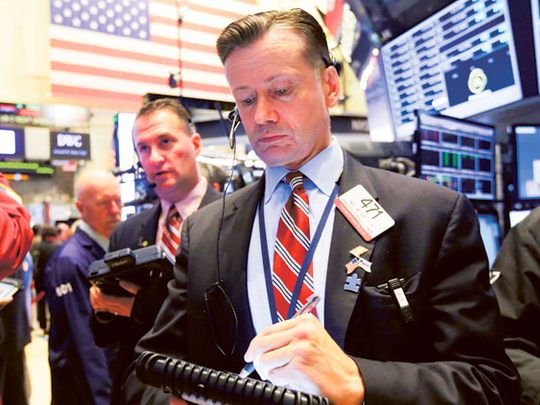
London: Quantitative easing and record low interest rates in the US played a key role in the recovery of equity markets after the financial crisis, but the US markets no longer require liquidity crutches to sustain itself, said Robert Buckland, Citi Global Equity strategist.
“Although corporate earnings recovered after the crisis, it took a while for markets to recognise that the recovery was a sustainable one. During the last couple of years markets have recoupled with earnings growth and this is likely to boost equity valuations further,” said Buckland.
While in the early stages of US recovery, rerating of equity prices was largely driven by cheap money, now with corporate earnings driving the equity valuations, market has reached a stage where it no longer requires extraordinary liquidity support, he said.
According to Citi equity strategists, companies globally are delivering robust earnings with the exception of Europe where weak macro data continue dampen earnings outlook. Europe has been going through massive recession and the market is badly in need of liquidity.
“We expect full-blown liquidity easing by the European Central Bank (ECB) later this year. The asset buying programmes and other exceptional reflationary measures are expected to boost the markets,” said Jonathan Stubbs, Citi Europe, Middle East and North Africa Strategist.
Earlier this month, the ECB cut its main refinancing rate to 0.05 per cent from 0.15 per cent and drove the overnight deposit rate deeper into negative territory, now charging banks 0.20 per cent to park funds with the central bank overnight.
ECB President Mario Draghi also announced plans for an asset-backed securities (ABS) and covered bond purchase programme to help ease credit conditions in the bloc. Analysts expect it could amount to 500 billion euros ($650 billion) over three years, which will come as a big boost to the equity prices.
On the longer term, Stubbs expects further gains in European stocks in the coming months. “European equities have returned 8 per cent so far this year, recovering strongly from the recent summer sell-off as bad news — weaker macro data — has quickly become good news — more ECB liquidity,” he wrote in a recent note.
“There has been a strong re-rating since mid-2012. European equities are now 17 times P/E, from 10 times then. No longer cheap in absolute terms, but still super cheap relative to other asset classes, such as credit.”
US interest rates
A hike in US interest rates are not likely to trigger a sell off in both US and emerging markets, said Buckland.
In the US, company balance sheets are strong while the earnings are on the rise with key macro indicators such as employment and consumer spend on the rise. In the leading emerging markets, the reaction will not be as sharp as it happened last year when the Fed hinted at tapering. He believes emerging markets are in better shape to absorb higher rates.
“We expect some of the markets like China and South Korea to do well even in the face of higher US interest rates. With relatively cheap valuations and high savings rate and positive current account situation, these markets are likely to attract fund flows, said Buckland.












